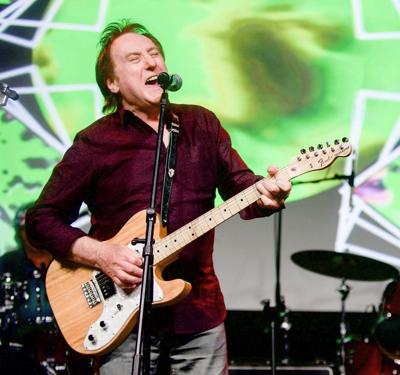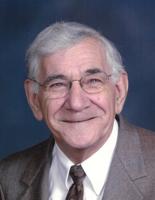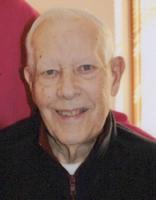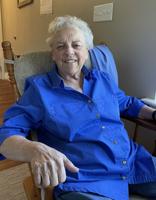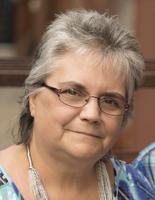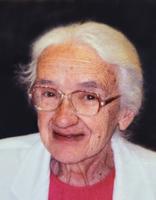A founding member of The Moody Blues and Wings, singer-songwriter and multi-instrumentalist Denny Laine is currently touring behind some of his most well-known recorded work alongside The Moody Wing Band, performing the albums "Band on the Run" and “The Magnificent Moodies” in their entirety.
The band will play an 8 p.m. show Saturday at the Riviera Theatre in Three Rivers, Michigan.
Birmingham, England-born Laine phoned from St. Augustine, Florida, sharing perspectives on the music business, insight into his songwriting dynamic with Paul McCartney and how the entertainment industry tends to alienate performers.
Geoff Lesar: First, Denny, what do the names Django Reinhardt and Charlie Kunz mean to you?
Denny Laine:[laughing] Well, Charlie Kunz was a piano player that my mother used to like a lot and played all his records. And Django Reinhardt was really the first guitarist that I was really, you know, influenced by. The gypsy jazz music was always a big favorite with me.
GL: What about Charlie Kunz spoke to you?
DL: Well, you know, we liked musicians, and Charlie Kunz, he was just a good piano player playing popular music that I was brought up with, that kind of music, in the house. And also my sisters had a lot of other influences, you know. They were into the crooners of the day, Johnnie Ray, Frankie Laine, people like that. I was kinda brought up with a lot of diverse musical influences.
GL: Can you take me back to the Saville Theatre [June 4, 1967], when you were with Electric String Band, playing that show with [Jimi] Hendrix? Can you take me back to that night and share how it progressed?
DL: I’d already met and known Jimi a little bit … and I was supposed to do the weekend before, but my bass player got sick. I wasn’t gonna go up there and make a fool of myself with a stand-in bass player because it was very intricate, you know, parts that had to be played. So, I cancelled the first weekend and then I heard that John Lennon was in the audience, “Oh, we only came to see Denny.” [laughing] So, he was making a joke about it. Anyway, the next weekend I did do, and John and Paul [McCartney] and Peter Asher were in the audience. That’s how I heard from Paul later, I think that was something to do with after they saw me do the show, and even Jimi gave me a bit of a compliment.
Well, because the string band that I had was four musicians who knew all kinds of music, and plus a bass player and drummer, it went really well. So, it was the first time that I had really played in London on the big stage, especially a big show like this with the string band. And I just happened to, you know, have a good night. We had been playing for a year; it took that long to get to the point where we were that good, and it went great. It did me a lot of favors.
GL: Was there a conversation then that took place after the show?
DL: Well, not with those people, no. This was just at the club, Jimi came up to me and liked my guitar playing. So, no, no conversation after the show. But it did lead to Paul calling me, I’m pretty sure.
GL: Right, right. That’s what I was kinda getting at. How did that conversation go, the impetus of Wings?
DL: After that show, I was off the road for a while because my band was working around the world in orchestras, so, I joined up with Ginger Baker because he wanted to put something together. And it was after that event that Paul called me. I had known Paul before. I had known him for many years, in fact, we went to see Jimi Hendrix for the first time together when he came into London. But The Beatles were friends with The Moody Blues, and we did their second British tour, so there was that connection already. I think he just wanted to work with someone he knew. You know, it was going to be easier than having to work with strangers, I believe. So, I think that’s why he called me. It was very easy because we knew each other.
GL: How was that time with The Moodies backing Sonny Boy Williamson [II]? He’s got quite a storied past, Sonny Boy Williamson II, you know, what was that experience like? Was it more backing when they came over? Were they based in England for a bit?
DL: Sonny Boy, I believe, and a lot of those blues guys lived in France because they got a lot of work out there. They got a lot of respect and a lot of work in Europe that they didn’t get in America, you know? They weren’t as well-known or they weren’t as well-appreciated, so they lived in Europe. And we came down to London. We were discovered, actually, in a blues club because we were a blues band to start with. And we came down to London and became part of the Marquee Artists. Now, the Marquee Club was famous at the time for blues artists. So, we were on that roster and we met a lot of people because of that gig. The Yardbirds worked with us, and Rod Stewart and Jeff Beck Group; people like that would be on the same bill. So we were a part of that London blues scene.
So, anyway, Marquee Artists were bringing over these guys who worked in England, and Sonny Boy was one of them. So, we ended up backing him, we did a few TV things, we went back to Paris, we toured in France and Europe with him, and it was a great experience because you learn so much from these people. Of course we admired him. I loved his style of harmonica playing, as I did with Little Walter. I was a big fan of harmonica players. There was also Chuck Berry, who we toured with. That was our first big tour that we ever did was Chuck Berry. So we got to meet some of these great people we admired — that was the great thing about the early days of The Moody Blues. And they knew all the English bands as well.
GL: Was that around the same time that Mick Fleetwood was backing Sonny Boy as well? Where did that range occur when you were backing him?
DL: I don’t know. If Mick Fleetwood was backing them, that would mean they were in the same kind of span of time and would have done another tour with him because Fleetwood Mac was a blues band too.
GL: Yes.
DL: But yeah, he probably did work with a lot of other bands. I don’t know of that particular, you know, situation. It probably would’ve been the same time.
GL: How did your involvement with Ginger Baker’s Air Force come about? I haven’t been able to find too much in regard to how you were connected with the group for those first two albums.
DL: Well, Ginger Baker and Jack Bruce were in the opening band on the Chuck Berry tour, The Graham Bond Organisation, and that’s how I met them originally. And then years later, Trevor Burton from The Move and I were friends with Traffic because we’re from Birmingham, Traffic were from Birmingham, and we’d visit them at their cottage in the country. And one day, it was Steve Winwood’s birthday, and Eric [Clapton] and Ginger were down there. … I jammed with them and soon after that — obviously the Blind Faith thing ran its course — and soon after that we had a party in our apartment in London. Ginger came, and other people came, and we were sitting around a piano and he said, “Do you feel like putting a band together?” I said, “Sure. Why not?” And I said, my band had been off the road anyway, so we did. You know, I always found it quite easy working with Ginger because I knew him so well. We came together very well, but he got sick, and of course that didn’t continue. And that’s when, shortly after that, I got the call from Paul.
GL: Yeah, and you had guys like Ric Grech and Stevie who had been playing together for quite a while, it must have been fairly seamless for, you know, players of that caliber to come together for something new.
DL: Well, yeah, you know, it always great to be in a big band sometimes because you get so many different influences, and everybody gets to jam and solo and stuff like that. So, from that point of view, it was really great. But you always end up wanting to do your own thing eventually, and that’s what I was basically more interested in doing. But it was a good communal musical trip, let’s put it that way. It was fun for the time. I wanted to get back to doing my own thing, and that’s what I was doing shortly after. I was at the office one day and I was talking to Mark Bolen [of T. Rex], and he was saying, “What are your plans?” I said, “Well, I’m just waiting for my band to get off tour, and then I’m just gonna continue with that.” So, that was same period of time I got the call from Paul, so, that kind of changed my plan again. I went up to Scotland, and we started Wings.
GL: Right. I remember reading about the time in Scotland, where both of you were kind of looking for an outlet. I remember, I think you said, you saved each other, in a sense.
DL: Yes, we did. Because you know, Paul was doing his own thing. But we’re band people. We liked working in bands and we liked to collaborate sometimes; that’s what we were used to. I think me and him had that similar kind of background musically, obviously. We didn’t both come from Liverpool but we had a very similar background. We communicated really well. We wanted to do something that was different, obviously, from The Beatles and from The Moody Blues — we had to. We had to go in another direction. Of course, he was writing, and I was helping him to develop his solo career, really, to start with; that’s the way I saw it. And then, of course, it turned into a band, and we started playing live, and then it just escalated. But again, the reason me and him started to get it sort of all worked out was really because we had that kind of bond. We kind of relied on each other and went through all the changes together. And if band members came and went, we still stuck it through. We knew we could just, you know, keep playing and keep writing and just moving forward. And that’s what happened with “Band on the Run.” I mean, we were supposed to do that with a band but we didn’t, and it still worked. So, we had that, definitely, that collaboration thing going.

IMAGES CONTRIBUTED
Denny Laine & The Moody Wing Band will perform the albums "Band on the Run" and "The Magnificent Moodies" in their entirety beginning at 8 p.m. Saturday at the Riviera Theatre in Three Rivers, Michigan.
GL: Denny, why wasn’t [“Band on the Run” track] “Nineteen Hundred and Eighty-Five” ever performed live?
DL: [laughing] I don’t know that. You know, we never did albums; we just did selections of songs. But I do. One of my guys in [The Moody Wing Band] sings it, and we do it in the “Band on the Run” [section of the show]. We do the English “Band on the Run” album, by the way. But no, I wouldn’t know. That’s up to Paul [laughing].
GL: How did you, Paul and Linda [McCartney] approach that songwriting dynamic, and how did you know when to take the reins with your own compositions, such as “Time to Hide,” and when to complement what was being produced by the others?
DL: Oh. Well it wasn’t Linda. Linda wasn’t really involved in the writing, not from the point of sitting down and writing songs together. I mean, she may have been influencing Paul, you know, privately on that, but we would get together specifically just to sit down and write, Paul and I, that is. We were just together. Or it was a situation where he would write a song, and I would help him finish it, and that’s what happened with “No Words,” in fact. I had, like, that song, two pieces of music, and his idea was to join them together, but we collaborated on the last verse, and that was it. But you know, he encouraged me to write … , but, you know, most of those songs I was kinda doing myself and then I’d just get help finishing them. And he had a few songs like that, too. “Mull of Kintyre” was one of them. I mean, that was a big hit for us, but he had the chorus, … so I just had to finish that. You know, you have that thing of wanting to write, that’s all. We enjoyed the writing process just as much as we enjoyed the live playing.
GL: I think at a point in your career, the studio work became second to the desire to get out there and tour, particularly — and I know it’s well-documented — your perspective post-Japan bust [McCartney was arrested Jan. 16, 1980, after being caught with about a half-pound of marijuana while attempting to enter Japan] and what went on after that, that there was no falling out [between Laine and McCartney], that you had this urge to play, that you had an album on deck and you wanted to get out there and hit the stage, and it just wasn’t feasible in the conditions that were happening at that time.
DL: That’s right.
GL: How did you make that transition from less focus in the studio to wanting to be onstage more, and why did that take place?
DL: Well, you know, there’s two ways of looking at this. The first thing is that Paul being the real hard-working studio musician that he became, especially with The Beatles because they stopped going on the road and they were just a studio band. He had open-ended studio time, and that’s a big plus. So when we got together, we had the same thing, we had an open-ended studio and we could just spend as much time as we wanted. But that is, in its own way, can be a bit of a trap because you tend to do more studio work than you would if you were on the road working a lot, and then you’re just in and out of the studio like it used to be in the old days. You’d do a tour, you’d do work and you’d maybe be in the studio for maybe a day or two and then on the road again. … And also because of Paul’s fame, I think he spent more time in the studio because probably it got him away from, you know, the media attention and gave him a bit of privacy to be creative.
The thing was, when we did get busted in Japan, that meant that we couldn’t go on the road. We were just at the point, now, where we were ruining our feet being on the road. We had a new band ... and we had done an album, which is lots of work. … All it meant now, was after that, we couldn’t [tour]. It meant we’d have to go back in the studio and make more music that way. And I was getting frustrated with that, at the time. But I did stay and do two more albums with Paul, but we didn’t call them Wings albums. But, you know, it seemed like, OK, well I’m just gonna do some studio work then. And I had, at this time, written enough material for an album, so I decided to go and promote that, and you said, we drifted apart in that sense, where I went off to do something or I’d be sitting around doing nothing otherwise. And that was my way of getting out there to work live again, although it was a bit of a struggle, obviously. At least it got me out there again working live, which I prefer to do that work … because that’s how it all started.
GL: In regard to some of the earlier relationships you had starting out, one of them was with [The Rolling Stones’] Brian Jones, a good friend of yours. How was that relationship fostered, and what was the origin of that relationship? It sounds like he was a big influence as a friend and musically.
DL: Oh, I mean I really got to know Brian because I think we did a short set of gigs with the Stones. One of them was at the London Palladium ... and I particularly liked Brian because I felt, to me, he was the most creative one at that time, although the other guys were great. He was the one who was coming up the ideas musically, I think, and I related to that. So, we would meet in clubs, or I’d go out to his place, whatever, in London, and we’d just sit and talk and play and just really enjoy — I liked him as a guy. He was a very intellectual but very creative person and really talented musically, too. He could sort of play anything. But he was out there, as far as being creative, and that’s what I liked about him. Although we never really worked together, we kind of drifted apart because I went off to do other things. And I was very sad to hear of his passing because, at that one time, you know, we were very, very close friends and did a lot of things together.
GL: Denny, what can you reflect on in terms of the trappings of the industry? You know, there’s been documented talk from you about getting screwed over initially with The Moodies and your first management —
DL: Right.
GL: And then later being picked up by [The Beatles’ manager] Brian [Epstein], and I’m wondering what perspective you can offer readers on the business end of the industry and how that’s evolved from what you witnessed to what you know now.
DL: Sure. The Moody Blues, we did not see any of the money apart from what was used to promote us. I always use this expression: the music business is like the Wild West. There were no rules. And a lot of the guys who were dealing with the money, the management, the production, they didn’t really know what they were doing, so they would overspend and make mistakes. … So you didn’t blame them — you can’t call them all thieves, but there was little bit of that. Well, they were responsible for the money. And you can’t afford to court if you don’t have money. That all changed, I think, in the late ‘90s, where you could actually go after money if you found a contract where you weren’t represented by a lawyer, you had a chance to go back after money because it was still there, which some of us did. … Now, with the Paul thing, I was never really under the Paul camp; I was an independent. And one of the reasons I did walk away financially was because suddenly they were going to help me take care of my business instead of me taking care of it myself. And it turned out, we didn’t end up doing that, and I went separately again. “I’m going to go off and do it myself,” and again, but I didn’t need the help and that’s the reason I left, although they said they would help.
So, now, you go through life and you go through different management. I don’t really go through management anymore because it’s hard to trust management. As far being in management, I have a lot of respect for agencies. You know, you need agencies; you might not need management. But management is really there to help you deal with the finances, the arrangements to get to and fro, the logistics, whatever. The ideas really come from the artist, not the management. The management is there to encourage and help the artist, but not promote the ideas. It never was like that. We never had management in the early days. … I know quite a lot about this business because it changes all the time, but it doesn’t change that much. And you have to manage your own integrity. You can’t leave it up to management to make you a success. But I’m always going through different people, because as you said, you know, the thought of being tied to one set or one group of management and agency is very frightening to me. … It’s always a bit of a battle between artists and that side of the business — it never changes.
GL: You once said, being a star is likened to being an alien. Can you talk more on that and the feeling of being an alien among crowds, among fans, those around you?
DL: The problem with fame is that, you know, people think, and rumors, and a lot of things that happen in your life are exaggerated by people around you. There are times when people overpaid or overcompensated you sometimes; they don’t get the facts right. Sometimes it’s in your favor, and sometimes it does make you retreat a little bit. … Generally speaking, it’s just like any other job: you learn how to deal with it, and Paul is pretty good at it. I always thought the way he handled people was pretty good. To get too seriously into what it means to be an individual or a star or an alien, you’re still a person and you still want to be a part of a group, but you want to be social. We all come from big families, or I do anyway, so you’re kind of brought up like that.
And it’s very difficult to deal with — I mean, I don’t spend a lot of time with my family because I’m always on the go, it’s a different lifestyle, it’s not a 9-to-5 job. It’s not really me being unsociable, it’s just me doing my job, and that alienates you or distances you from some people. You’re always going to have someone or a friend who is on your side, so you’ll still have a certain amount of that social support. It’s kind of invaluable. You can’t do it on your own, of course. You do tend to have a very small circle in terms of being a star. But I’ve never experienced it on the level that Paul has, although I have experienced it. So I learned a lot from that. There’s no way you can be a part of the crowd if you’re doing this job. I mean, you are definitely more of an individual than a group member, I think. I think you have to be like this. You have to be a bit of a loner. When you start picking up a guitar to practice, you spend a lot of time on your own anyway.
GL: Yes, I’m a bassist of 16 years and know that solitude. In order to do anything well, I think there’s a degree of individual concentration required to progress.
DL: Oh, definitely. It doesn’t matter what profession.
GL: Is there anything you want to set the record straight on in terms of any misconceptions or rumblings that have tailed you over the years? Anything you’d like to dispel or get straight for readers?
DL: Well, obviously the one that everyone seems to me and Paul hate each other. That’s not true because we never did really fall out. We just went our own separate ways. There have been times where people said, “Did you and Paul have a fight?” No. It was a mixture of a lot of things that made us sort of go away from each other, but it wasn’t anything mean-spirited or anything like that. Although we don’t talk to each other all the time, once in a while we have a communication. I still deal with his office on a few things, but we’re not, like, talking to each other every day on the phone. But at the same time, we have a relationship. We know each other quite well, and that will always be there.
The other things are, your personal lives, people do tend to, like, by knowing your family, people do tend to get into your family because it’s who I am. It can be very, very annoying sometimes because they don’t really know me that well, and yet through my family, they go out and they have a lot of talk. It’s like doing an interview — sometimes you do an interview and you say one thing and it comes out completely different. It’s like that. Things get taken out of context. A lot of stuff goes out there, like I said, through your family, your close friends, and it’s just rumors most of the time. You’re always going through life going, “No, I didn’t say that. No, I didn’t do that.” You’re always defending yourself, which can be annoying. But at the end of the day, there’s nothing you can do about that because everybody has a different take on the story. As I said, I don’t talk much about what I do. I don’t talk about my private life too much. I don’t talk about how I write songs or how I this or that.
In the "Songs and Stories" show I do, I do tend to kind of get into a little period or incident where I put the record straight about how the song came together, how I met this person. There are a lot of things like that that I don’t mind talking about, and I really don’t like having to dispel rumors or anything like that. But they’re out there, they are. I just sort of let them be. Let the mystery be, as they say.
GL: Sure. How about the book, Denny? Both the book and [Laine-penned musical] “Arctic Song,” are there plans to continue with those?
DL: I started to talk about doing a book, but the guy I was going to do it with, an English guy who was around in the day in London when I was, ended up doing some other book when I was out busy doing other things. Again, a lot of these stories, I talk about onstage or in interviews. The idea of doing a book has always sounded like a lot of work [laughing] and you want it to be right. You need the help of people who were actually there. It’s hard to talk to people who weren’t there doing it, seeing it going on or have a mutual friend or whatever. You need that kind of person to help you put a book together.
“Arctic Song,” I did, first of all, in England with 12-year-old kids in two private schools, and it went down really well. And so it encouraged me to do it again, but it didn’t come until much, much later. And then finally we did it over here at a university up in Fredonia, New York, SUNY up there. And it went — it wasn’t really like the musical. It was the music of the musical. But it was kind of a precursor to the real thing. I’ve never actually done it with costumes ever since those with the kids. But I would like to do with more universities, just the music, and then eventually develop it into a proper stage show again. But the guy I co-wrote it with passed away last year. I did end up doing a lot more work on it than I thought I was going to do. Originally it was going to be him doing the story and me doing the music. I ended up doing, like, 90 percent of the music and 70 percent of the writing of the story as well.
I’ve kind of been having a lot of work again, and now if I’m doing it, I’m gonna be doing it with a guy called Armand Petri, who produces 10,000 Maniacs and Goo Goo Dolls. He’s the one who helped me do the university. So I need a team behind me to do it properly is all I’m saying, and he really gets it. So we are planning to do a little bit more down line. But again, it’s a time-consuming, big project and I just don’t have the time to do that right now. But yeah, I definitely want to do it. It’s an environmental piece and it’s very current at the moment although it was written all those years ago. So yeah, I do want to do that, for sure.
GL: How about The Moody Wing Band right now, Denny? Is there anything you’d like people to know about what they can expect from the show?
DL: That show is the “Band on the Run” album, “The Magnificent Moodies” album and about six or seven songs that I’m kind of known for. It’s kind of a story of my career, including those two albums. The storyteller thing is me doing solo shows, and I’ve got, like, six or seven of those in June coming up. I like to do that as well because that is what we were talking about. That is the stories behind the song. I do have a band singing a lot of the lead vocals on the “Band on the Run” album, for example. It’s not a cover band. We don’t copy the record exactly. We do our own versions. It’s a definite up-to-date version of those songs. And it goes down really well. I think people like that. Although it’s a tribute to those albums and those songs, it’s not really done in the same fashion. The guys are great musicians. We’ve a good crew.
GL: Is there anything you’d like to add that we haven’t touched on?
DL: I put a single out called “Meant to Be” and “Over the Horizon.” … That’s on vinyl. I do have an album in the can, which I haven’t released. We’re talking about doing that. But other than that, I’m just thankfully concentrating now on getting out and playing live because that’s what I love to do.
Geoff Lesar can be reached at geoff.lesar@goshennews.com or 574-533-2151, ext. 307.



